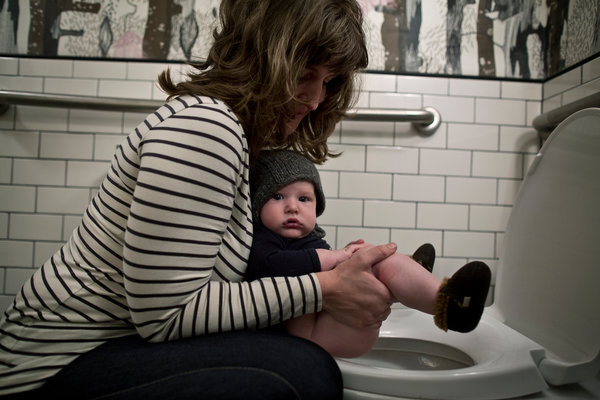![diapers-articleLarge[1]](http://www.threeguineas.com/wp-content/uploads/2013/05/diapers-articleLarge1.jpg)
What are crazy, hyper-vigilant Brooklyn mothers up to now? Poop. They are up to their elbows in poop because apparently diapers—like formula, cribs, and non-chewed food—are destroying our favorite borough’s children. The recent New York Times article on elimination communication (a euphemism if ever I heard one) is clearly not meant to be taken seriously. From the photo of the baby flashing a “WTF?” stare to the final anecdote about a woman holding her urinating child over a bowl at a dinner party, this article is obviously intended to give neurotic New Yorkers free reign to mock other New Yorkers whose particular brand of crazy involves collecting feces—hands down, the worst type of crazy. And fair enough, these women are self-righteous and kind of annoying. But what this article fails to take into account is the evolving cultural expectation of motherhood reflected in this type of parenting trend. Women are not only expected to love and care for their children, but they also have to breastfeed until their children can walk, sleep with their children until puberty, and, now, watch for eye movements, grunts, and grimaces suggesting that it’s time to poo. Even if such trends are mostly limited to Brooklyn’s Fertile Crescent, they are still part of the growing parenting mania for the “natural.” The “natural” may sound like a harmless or even progressive concept, but it often results in decidedly conservative conceptions of family life, where the father is nowhere to be found and the mother is chasing after her toddler with a bowl.









